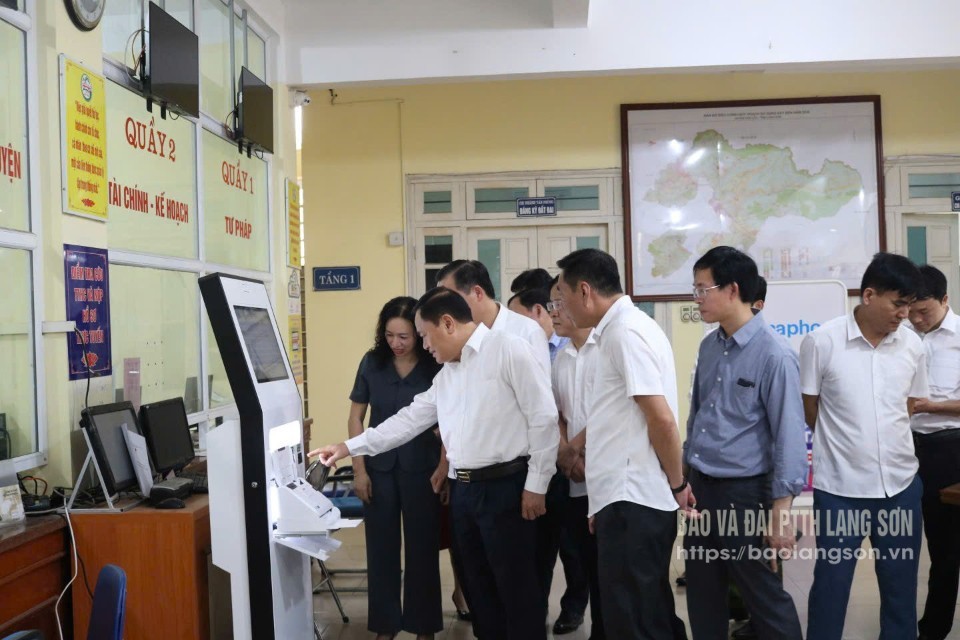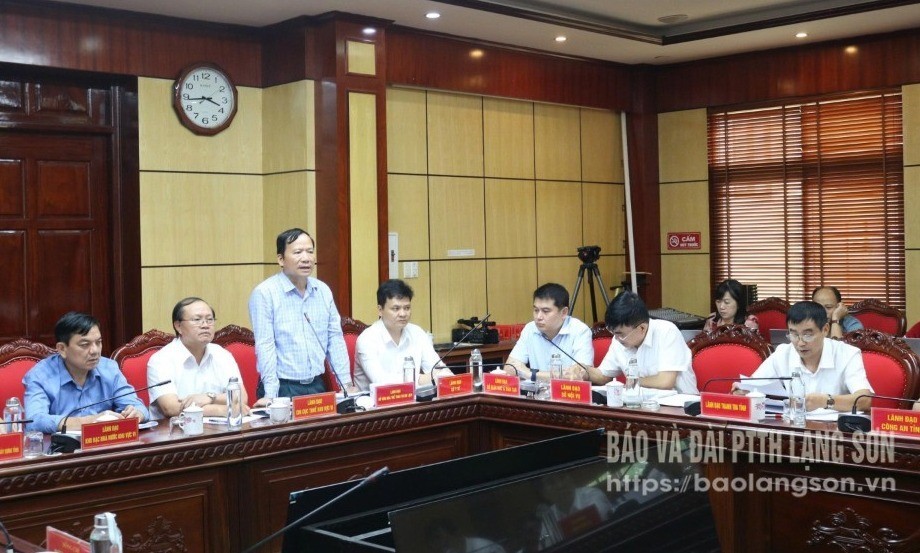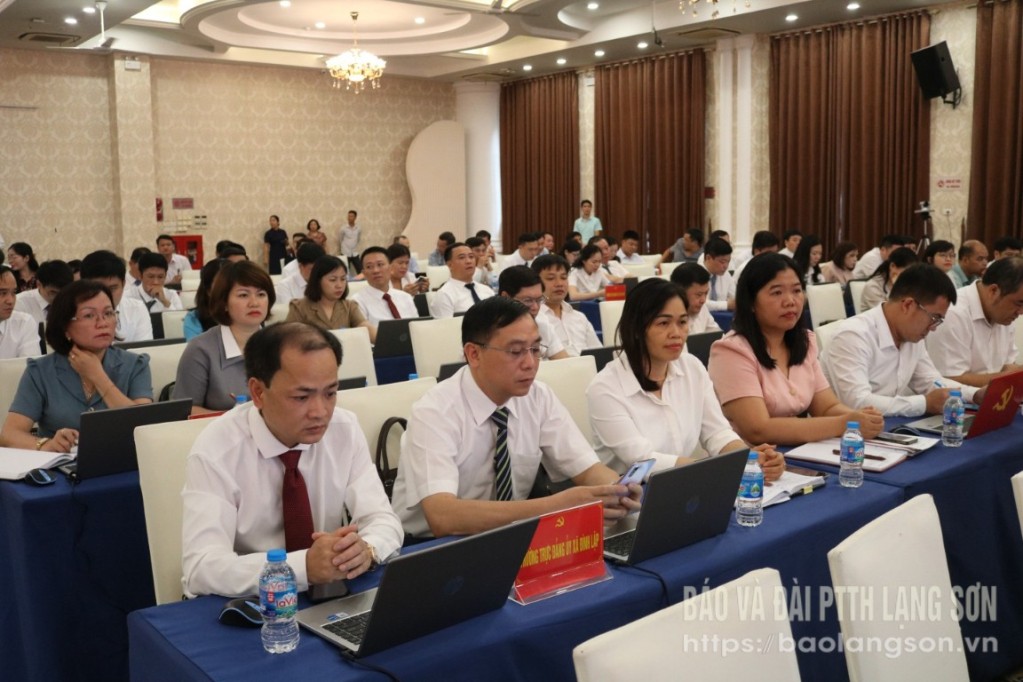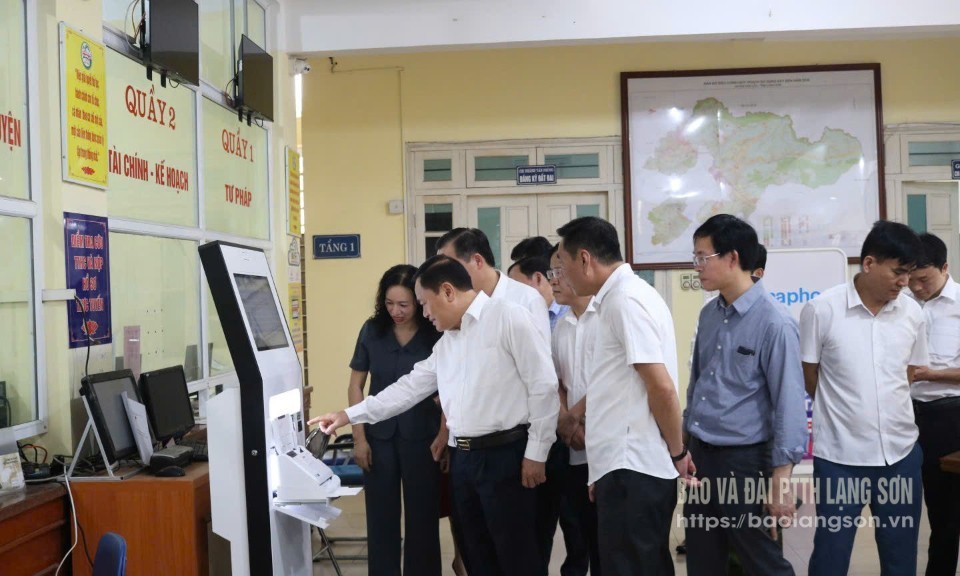Successful trial, smooth operation
Starting July 1, Vietnam will officially implement the two-tier local government model nationwide. To ensure the new model operates smoothly and effectively without disruption, Party Committees at all levels in Lang Son province have actively and thoroughly prepared the necessary conditions, including formulating trial operation plans to evaluate and draw initial lessons before officially launching the model.

In 2025, the entire province will restructure 194 commune-level administrative units into 65 communes and wards. This is a revolutionary reform in streamlining the administrative apparatus, marking a significant turning point in the province’s development. During the development of the two-tier local government model, Party Committees across the province closely followed the central directives and proactively created conditions in the spirit of "learning by doing"—implementing, reviewing, adjusting, and improving as they progressed.
Simultaneous trial operations
On June 15, the Provincial Party Standing Committee issued Plan No. 245 on organizing trial operations of the newly established commune and ward-level administrative apparatus. Accordingly, the province will conduct simultaneous trial operations in all 65 new communes and wards from 8:00 a.m. on June 26 to 11:00 a.m. on June 27. During this period, the Party Committee Standing Boards, People's Councils, People's Committees, the Vietnam Fatherland Front, and mass organizations at the commune level will handle hypothetical scenarios arising before, during, and after the trial run.
The trial will focus on activities such as organizing meetings of Party Executive Committees, Party Standing Boards, People's Committees, People's Council standing bodies, the Vietnam Fatherland Front, and mass organizations; receiving and processing documents; and delivering public administrative services. The People's Committees of communes will conduct meetings to issue working regulations, assign responsibilities to leaders and members, prepare reports on the first six months of work, and develop plans and programs for the second half of the year.

Immediately after Plan 245 was issued, district and city Party Committees also promptly released plans for the trial operations of new commune and ward-level government apparatuses. For example, in Chi Lang district, according to Mr. Long Van Nhan, Permanent Deputy Secretary of the District Party Committee, the unit issued a trial operation plan for the new commune-level apparatuses in line with provincial directives. The plan outlines specific trial activities and operational mechanisms. Over a day and a half, the apparatuses of six new communes will convene at their main headquarters to conduct meetings and resolve hypothetical scenarios effectively and realistically.
The trial operation aims to timely implement regulations, rules, and legal documents concerning Party-building, government administration, the Vietnam Fatherland Front, and socio-political organizations. It also ensures adherence to principles of decentralization and division of authority in applying the two-tier local government model. Furthermore, it enables timely guidance and resolution of difficulties, obstacles, and practical issues, ensuring the new model will operate smoothly and cohesively once officially launched.
Under the close direction of the province, districts, cities, communes, and wards are now urgently finalizing all preparations to conduct the trial operation as planned.
Prepared for implementation
Immediately following the Central Government’s training conference (June 14–15), on the afternoon of June 17, the Provincial Party Committee continued to conduct a training session to thoroughly disseminate key content related to trial operations of newly structured commune-level agencies, as well as tasks that need to be prioritized when implementing the two-tier local government model. The session was directed at officials and civil servants working in the new communes.

At the same time, departments, sectors, and units have focused on preparing two groups of tasks to support the trial operation: (1) ensuring infrastructure, equipment, and document management systems; and (2) preparing trial-run scenarios for the operations of Party Committees, People's Councils, People's Committees, the Vietnam Fatherland Front, political organizations, and public administrative service centers.
Regarding infrastructure preparation, 65 task forces from various districts surveyed the new commune headquarters and provided guidance on organizing meetings of Party Standing Boards, Party Executive Committees, People's Councils, and People's Committees. In addition to reviewing facilities and locations, the task forces also instructed the communes to ensure proper equipment and stable internet connections to support smooth document management system operations during the trial. In general, the facilities of the newly established communes and wards meet the required infrastructure standards and are ready to welcome officials and civil servants for the trial operation.
To prepare for the new apparatus operation, authorities from the provincial to grassroots levels have studied and developed operational plans, trial scenarios, and contingency strategies to address issues that may arise when operating the new two-tier administrative system.
Mr. Nguyen Hoang Tung, Member of the Provincial Party Standing Committee and Chairman of the Provincial Vietnam Fatherland Front Committee, stated that the Standing Committee has proactively developed a trial operation plan for the upcoming trial day. Specifically, the provincial committee will request the standing committees of the Fatherland Front in newly established communes and wards to submit progress reports on the implementation of the program to eliminate temporary and dilapidated houses in the newly formed areas. At the same time, provincial political organizations have also studied and developed scenarios to participate in trial operations during the implementation of the two-tier local government model.
Similarly, at the grassroots level, under the guidance and leadership of higher authorities, the new communes and wards have actively and urgently prepared operational scenarios for the new administrative apparatus, initially focusing on trial-run tasks such as organizing meetings.
Mr. Hoang Sy Nguyen, Secretary of Hoa Son commune, Huu Lung district (in the coming period, Hoa Son, Tan Thanh, and Hoa Lac communes will be merged into the new Tan Thanh commune), stated: “To prepare for the trial operation, we are urgently compiling meeting materials based on guidance from higher levels. For example, in developing scenarios for the operation of the new communal People's Councils, we have prepared materials such as the notification of the number and list of commune-level People’s Council deputies after the restructuring, draft resolutions of the provincial People's Council Standing Committee on the appointment of leadership for the People's Council and People's Committee, specialized departments, and draft reports on performance in the first half of the year along with directions for the second half. We are also reviewing voters' concerns and suggestions.”
Like the new Tan Thanh commune, the remaining 64 newly established communes and wards across the province are also rapidly preparing operational trial scenarios following the provincial plan. To monitor real conditions at the grassroots level, from June 17 until the trial begins, the Provincial People's Committee has been and will continue conducting inspections of the preparation work for the implementation of the two-tier local government model across districts.
With a readiness mindset and thorough preparation, the entire province is committed to conducting the trial operation of commune- and ward-level apparatuses seriously and effectively. After the trial, agencies and departments will compile concise reports and lessons learned to ensure the new administrative apparatus will run smoothly and stably starting July 1.
 Loading
Loading  Tiếng Việt
Tiếng Việt English
English 中文
中文


